2023-2024 Illinois Scholars
The Illinois Chapter of ARCS® Foundation has granted awards to a total of nine scholars for academic year 2023-2024. These scholars were selected from the five institutions that are our Chapter's Academic Partners:
- Illinois Institute of Technology
- Loyola University of Chicago Stritch School of Medicine
- Northwestern University
- The University of Chicago
- University of Illinois Urbana-Champaign
Awards were presented at the Scholar Awards Event on October 18, 2023.
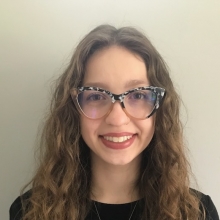
PhD in Biomedical Engineering
Pat and John Anderson ARCS Scholar Award
Sarah is conducting research on image-based biomarkers for diabetic retinopathy, a leading cause of blindness that may result from retinal blood vessels damaged by prolonged high blood sugar levels. Currently there is no method to identify diabetic retinopathy during the preclinical stage, when early detection and treatment could prevent more than 90 percent of diabetic-related vision loss. Sarah is part of a research team developing the dynamic tracer kinetic model, a novel method for quantitative analysis of two image-based biomarkers: retinal vascular permeability and volumetric blood flow.
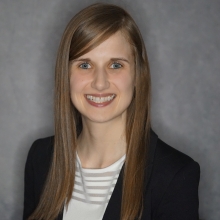
MD/PhD in Neuroscience
Aileen S. Andrew Foundation ARCS Scholar Award
Alzheimer’s disease is the most common neurodegenerative disease worldwide, and its prevalence is expected to significantly increase with the aging population. Although this condition has been known for more than a century, currently no cures exist, and treatments have proved to be largely ineffective, likely due to a lack of understanding about the biology of the disease. Rasa is working to elucidate the contribution diet has on the progression of Alzheimer’s disease and uncover the molecular mechanisms responsible. She is studying how the composition of food affects systemic and central inflammation, leading to worsening neurodegeneration.
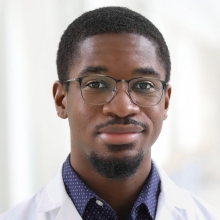
MD/PhD in Microbiology-Immunology
The Brinson Foundation ARCS Scholar Award
As an MD/PhD student, Bakare has experienced how closely intertwined disease diagnosis and care are with research in immunology. He is investigating the immune response and protection provided by combining different types of vaccines targeting the same virus, specifically SARS-CoV-2 and HIV. One area of study focuses on using different COVID vaccine platforms for initial and booster vaccinations. The challenge is finding an ideal combination. Bakare is working to address that gap in knowledge and identify an optimal vaccination strategy using different vaccine types, not only for COVID but for other viral infections as well. He is also exploring the use of immune checkpoint inhibitors to help modulate the immune system during vaccination and allow vaccines to persist longer after administration.
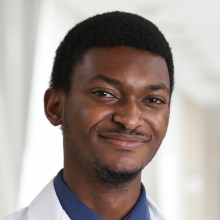
MD/PhD in Chemistry
Danaher National Impact Award
Hendryck has often wondered why those who study medicine aren’t also the ones who make and design medicine. He is training to become a physician–scientist so he can fuse the study and design of medicine to facilitate better drug development. His current research focuses on using metal-based drugs, specifically cobalt complexes, as new antibiotics. Metal-based drugs have been used to fight cancer but are an untapped source of antibiotics. One way cobalt complexes could combat resistant bacteria is by inhibiting their resistance machinery so that old antibiotics can function again. So far Hendryck has designed and tested four different cobalt complexes, each with some ability to inhibit enzymes that deactivate antibiotics such as penicillin. He is also working on methods to increase the uptake of cobalt complexes into bacteria.
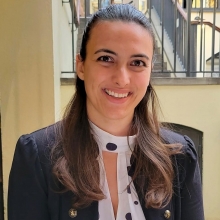
PhD in Physics
The Brinson Foundation ARCS Scholar Award
Extensive experience in a broad range of black hole and gravitational wave research well equips Alexandra to explore the countless open questions facing the gravity and cosmology community. Alexandra is simulating theoretical black hole images to relate observed features to phenomenological characteristics and then to compare the model-generated images to the images collected by the Event Horizon Telescope. Her research will enable her to estimate systematic bias in gravitational-wave dark siren measurements.
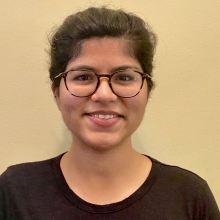
PhD in Ecology and Evolution
Danaher National Impact Award
Millions of years of evolution have resulted in a vast diversity of organisms; yet recent studies show that much of this diversity originated via small changes or redeployment of old genes rather than the evolution of new ones. However, the mechanistic basis of this genetic co-option process remains unclear. Sofia is investigating the evolutionary origins and functional basis of co-option using swallowtail butterflies, in which mimicry has evolved by repurposing a gene that controls sex differentiation across insects. These understandings can teach us about microevolutionary processes such as gene co-option; they can also inform how to approach conservation issues as species deal with rapidly changing environments.
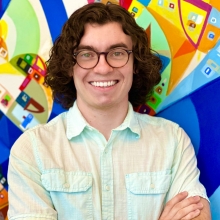
PhD in Physics
The Brinson Foundation ARCS Scholar Award
Scott is well positioned to be a leader in the integration and testing of the Payload for Ultrahigh Energy Observations (PUEO), a NASA Long Duration Balloon mission that will fly over Antarctica in 2025. His work involves building instruments that will look for radio signals from ultrahigh-energy astrophysical neutrinos to discover the sources of the highest energy particles in the Universe and learn about the physics that drives their central engines. After testing the instruments, he will deploy to a NASA facility to integrate the experiment, before going to Antarctica for the launch. In addition, Scott is rebuilding a water vapor radiometer, which measures the microwave signal generated by water in the atmosphere. This is important for ground-based measures of cosmic microwave background radiation, the leftover signal in the sky originating not long after the birth of the Universe. The research group is planning a deployment to Chile’s Atacama Desert later in the year.
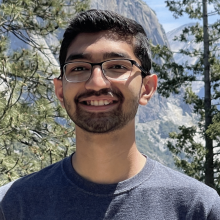
PhD in Aerospace Engineering
ARCS Foundation Scholar Award
Stray asteroids have played a major role in altering Earth’s geological history and evolution of life. Rahil is studying gravitational keyholes, arbitrary regions in space that asteroids can pass through and impact Earth. His focus is on a novel method of pushing these rocky remnants away from keyholes, ensuring they never return on impact trajectories. Rahil is on the science team for NASA’s DART mission, which successfully demonstrated humanity’s ability to deflect an asteroid. In summer 2023, he was a visiting researcher in the Solar System Dynamics (SSD) group at NASA’s Jet Propulsion Laboratory. SSD is responsible for determining the motion of natural bodies in the Solar System. In addition to planetary defense, Rahil is interested in the field of Entry, Descent, and Landing (EDL) in aerospace engineering. This area focuses on designing vehicles that pass through the atmosphere of a natural body. His work is on aerogravity assists at Venus, allowing spacecraft to get to the outer Solar System in a shorter time than current missions.
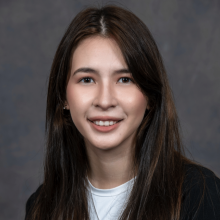
PhD in Agricultural and Biological Engineering
ARCS Foundation Scholar Award
Thanks to Sabrina’s research, aviators may one day be able to power their planes with our dinner leftovers! Sabrina is conducting research to find a new pathway to produce sustainable aviation fuel (SAF) from biocrude via hydrothermal liquefaction (HTL) of food waste. The food system in the US produces 77 million dry tons of collectable biowaste annually, which is generally considered an expensive burden (e.g., collection and disposal fees). However, these biowastes are high in carbon and nutrients that can be recovered and converted into SAF, effectively alleviating petroleum consumption, advancing goals toward net-zero carbon emissions, and promoting a circular bioeconomy.
